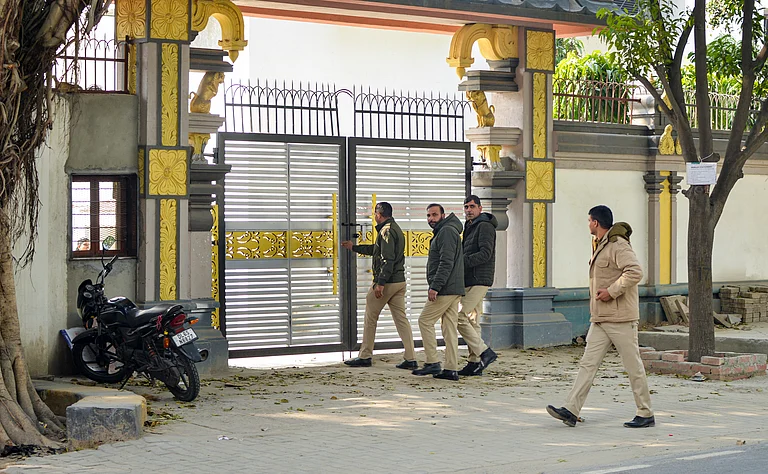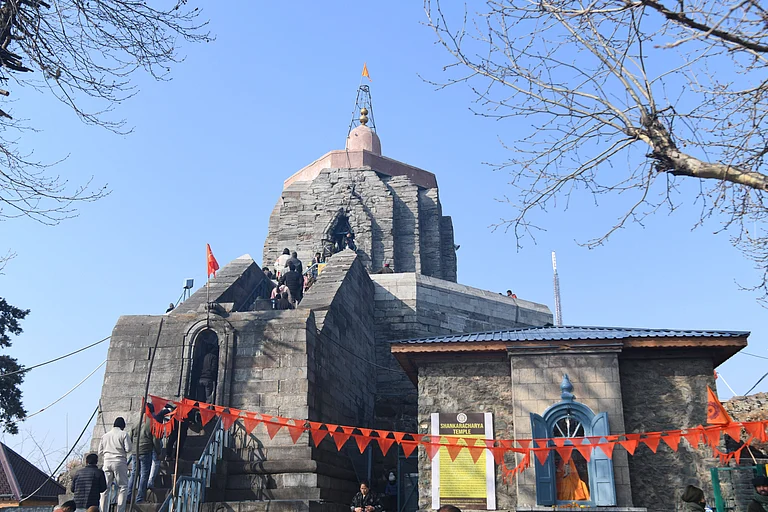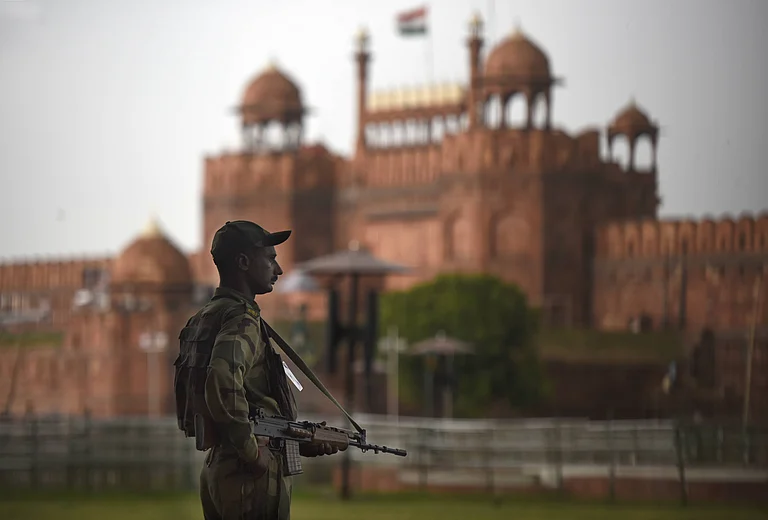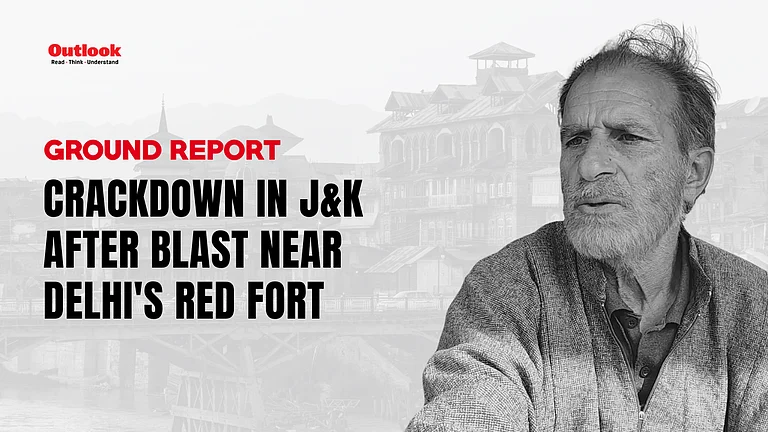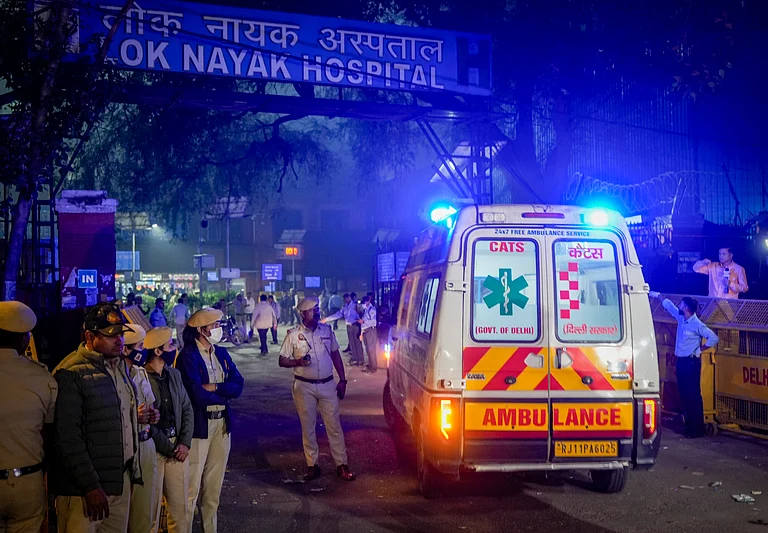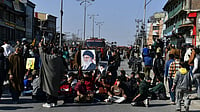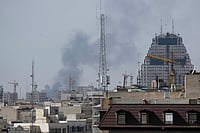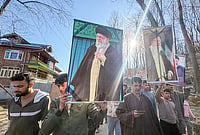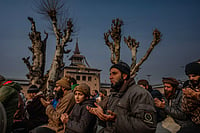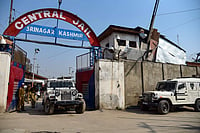
Summary of this article
Families of Kashmiri doctors behind the Delhi blasts have denied their role in the incident.
Jammu and Kashmir police have stepped up the investigation, with more doctors being questioned in the case.
Police have also urged responsible use of social media and warned of legal action over “anti-national” posts related to Delhi blasts.
Multiple raids at the house of thirty-four-year-old Dr Umer-un-Nabi began after his name surfaced in connection with the Delhi blasts on Monday, which left thirteen people dead and several others injured. DNA samples of his parents were taken in the early hours following the first raid. Within two days, the samples were used to identify the deceased youth driving the explosive-laden car as Dr Umer, after his DNA matched his mother's.
Dr Umer’s family has denied that he had a hand in the killings. They claim the doctor was soft-spoken and focused on his studies. Locals and family members described the suspected bomber as a hardworking student. He managed to secure a seat at the Government Medical College in Srinagar before starting work at Al Falah University in Faridabad.
Umer’s uncle, Abdul Rashid Ahanger, says that they learned about his involvement in the case only through media reports and ruled out the possibility of his involvement.
Police have, however, questioned several people, including a few more doctors and those working at the Al Falah University, following the recovery of large quantities of explosive substances besides arms and ammunition in multiple raids which were carried out in several parts of Kashmir, as well as at Faridabad in Haryana, and Saharanpur in UP.
A Jammu and Kashmir police spokesperson stated that searches were conducted at multiple locations by the Jammu and Kashmir Police in Srinagar, Anantnag, Ganderbal, and Shopian. J&K Police also conducted searches at Faridabad with Haryana Police and at Saharanpur with UP Police. The investigation led to the recovery of incriminating documents, electronic devices, arms, ammunition, and IED-making material.
The Delhi blast occurred less than twenty days after police registered a case under the UAPA Act, Explosive Substance Act, and Arms Act at the Nowgam Police Station, prompted by the appearance of multiple Jaish-e-Mohammad (JeM) posters in Bunpora Nowgam, Srinagar. These posters threatened police and other security forces.
Police statements and family accounts clarified that one of the doctors from the Koil area of Pulwama, Muzamil Shakeel, was detained at least ten days before the Delhi blast. His brother, Azad Shakeel, explained that Muzamil had been arrested last month, and his family only learned of his detention after his phone became unreachable. Azad believes Muzamil's arrest prior to the blast indicates his innocence in the incident.
According to Muzamil’s family members, he was detained at Panthachowk police station, but they were not able to meet him there. “ My brother was earlier working at SKIMS Soura, before he took up the job at Alfalah University, and is being falsely implicated in the case,” says Azad.
According to family members, following Muzamil's detention on October 30, they were unable to solemnise the marriage of his sister, Asmat Shakeel, this month.
Besides Muzamil, police have arrested six other people. Among them is the cleric Molvi Irfan Ahmad of South Kashmir’s Shopian. This followed the recovery of 2,900 kg of IED-making material, a Chinese Star Pistol, a Beretta Pistol, and an AK-56 Rifle with ammunition from their possession.
After the Delhi blasts, police have increased vigilance in Kashmir. Raids have continued at several places for the last four days. These raids targeted the residences of militant associates, activists of the banned Jamat-e-Islami (JeI), and overground workers (OGWs).
On the day of the Delhi blast, police in Kashmir carried out multiple Cordon and Search Operations (CASOs). They also launched vehicle checks along the Jammu-Srinagar National Highway, which had seen several mine blasts in the past. Additional checkpoints were set up along the highway to strengthen security, police said.
Additionally, on Wednesday, Jammu and Kashmir police also issued an advisory urging people not to post any content over the Delhi blasts, which is “anti-national.”
The police stated that they have observed some individuals posting or reacting irresponsibly to sensitive incidents on social media. This includes sharing anti-national or communal content or posting mocking emojis about the recent Red Fort incident.
The public is advised not to share, post, or engage with content that may hurt public sentiments, disturb peace, or undermine national unity. Police are closely monitoring social media accounts and online activities to detect and act against those spreading hate, misinformation, or disrespectful content. The public is urged to use social media responsibly and report objectionable material to the nearest police station. Strict legal action will be taken against violators under relevant laws, the Awantipora police in their statement.



